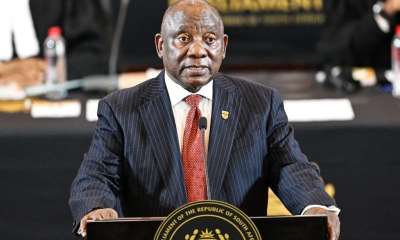News
Addressing the Widening Wage Gap – Urgent Call for South African Corporates to Take Action

Several JSE-listed companies have started to make some disclosure relating to wage gaps and internal minimum wages. But their ways of doing so differ, making comparisons difficult, the shareholder activist organisation Just Share said yesterday. According to IOL, the wage gap disclosure is not yet a legal requirement in South Africa, but the companies voluntarily released information for the Just Share analysis. As one of the most unequal countries, labour market inequality, including the wage gap between CEOs and workers, is the most significant contributor to income inequality. Statistics SA has highlighted that the labour market remains one of the key institutions through which exceptionally high levels of vertical and horizontal inequality are transmitted. Therefore, Just Share emphasised that listed companies must end their resistance to wage gap disclosure.
The analysis conducted by Just Share revealed that among the eight listed companies, the largest wage gap was at Shoprite. The CEO in 2022 earned 1081 times more than a worker earning the company’s minimum wage, assuming the worker worked 45 hours per week for all 52 weeks of the year, earning about R58,700. Comparatively, in the US, the ratio of CEO-to-typical-worker compensation was 399-to-1 in 2021, indicating a significant increase from 20-to-1 in 1965 and 59-to-1 in 1989, according to a BR online search.
Also read: Changing pattern of inequality in greater Johannesburg – From low wages to no wages
On the other hand, the smallest wage gap in the Just Share analysis was at the JSE, where the CEO in 2022 earned 49 times more than the disclosed “lowest grade total guaranteed pay” of R419,585. The pay gaps for other companies included 133 times for Old Mutual, 176 for Nedbank, 230 for Absa, 258 for Standard Bank, and 423 for Woolworths. While the companies provided information on their internal minimum wages, the lowest grade job that attracted the minimum salary was not specified, creating ambiguity regarding applying minimum packages to unskilled workers.
Furthermore, the companies utilised different formats and included various elements of remuneration in their pay gap analysis. Most companies compared their lowest wages to the statutory national minimum wage rather than assessing the fairness of overall remuneration within the organisation, as required by King IV or a living wage. Just Share acknowledged that some companies, such as Nedbank, Old Mutual, and Investec, calculated pay gaps using total remuneration, which is a positive step.
Despite the argument that pay gap disclosure may be “taken out of context” or “misinterpreted,” Just Share believes that stakeholders can assess fairness on a case-by-case basis. They consider this disclosure a crucial first step in understanding and addressing the high labour market inequality that negatively impacts the economy and society. Currently, there is no prescribed method for the public disclosure of pay ratios in South Africa. Pay gap disclosures are essential for increasing transparency and empowering investors to make informed decisions when exercising their voting rights on remuneration policy and implementation reports.
Also read:
Picture: Instagram / africa_global_news
Follow us on Google News.






















